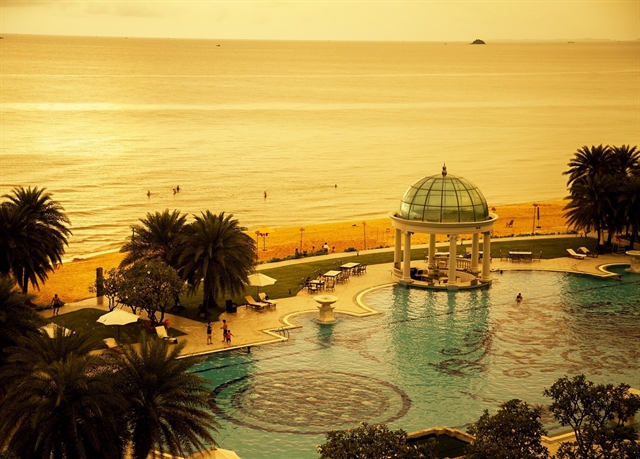 Life & Style
Life & Style

The resort island of Phú Quốc in Kiên Giang Province has seen a surge in tourist arrivals after Việt Nam fully reopened on March 15.

|
| A resort in Gành Dầu Commune, Phú Quốc City. — VNA/VNS Photo Hồng Đạt |
KIÊN GIANG — The resort island of Phú Quốc in Kiên Giang Province has seen a surge in tourist arrivals after Việt Nam fully reopened on March 15. However, there is still much to do to revive the tourism industry to pre-pandemic levels.
Data from Kiên Giang’s Department of Tourism shows that the Mekong Delta province received nearly 1.6 million visitors in the first quarter of 2022, up 31.1 per cent from the same period last year, one year since Việt Nam enforced border closure against foreign arrivals in response to coronavirus.
Of the figure, over 1.1 million, including more than 26,000 foreigners, travelled to Phú Quốc, a year-on-year increase of 33.9 per cent.
1,282 foreign vacationers from the Republic of Korea, Laos, Kazakhstan, Uzbekistan and Thailand have arrived in Phú Quốc using “vaccine passports” since the scheme started its pilot in Việt Nam last November.
With the full reopening, the island expects to see even more visitors. On March 19, it welcomed the first inbound flight, carrying 235 tourists from Kazakhstan who stayed for a week after travel restrictions were lifted.
Lê Trung Trực, a manager at Sunset Sanato Resort and Villas in Phú Quốc, said the occupancy rate hit 95 per cent in the first week after the reopening. He said the resort was fully booked during the weekend from March 18-20.
Director of the Kiên Giang Department of Tourism Bùi Quốc Thái attributed the spike in tourist arrivals to the province’s high vaccination rate, saying it had paved the way for the recovery of tourism activities.
Nonetheless, the tourism rebound is clouded by a lack of human resources as many tourism workers had to leave their jobs and return home due to the months-long COVID-19 shutdown.
The occupancy rate reached 65 per cent in the first week at Kim Hoa Resort, manager Bùi Áng Văn said, but the problem now was labour shortages. He said that the resort had been able to fill just 50 per cent of the positions compared to pre-pandemic levels.
More policies needed to be added to support the development and standardisation of the tourism workforce, Văn suggested, adding that the Ministry of Labour, Invalids and Social Affairs should set the scene for vocational schools to cooperate with local authorities and businesses to open short-term training courses to enhance capacity for tourism workers.
The province hopes to serve about 5.6 million visitors this year, including 200,000 foreigners. — VNS




